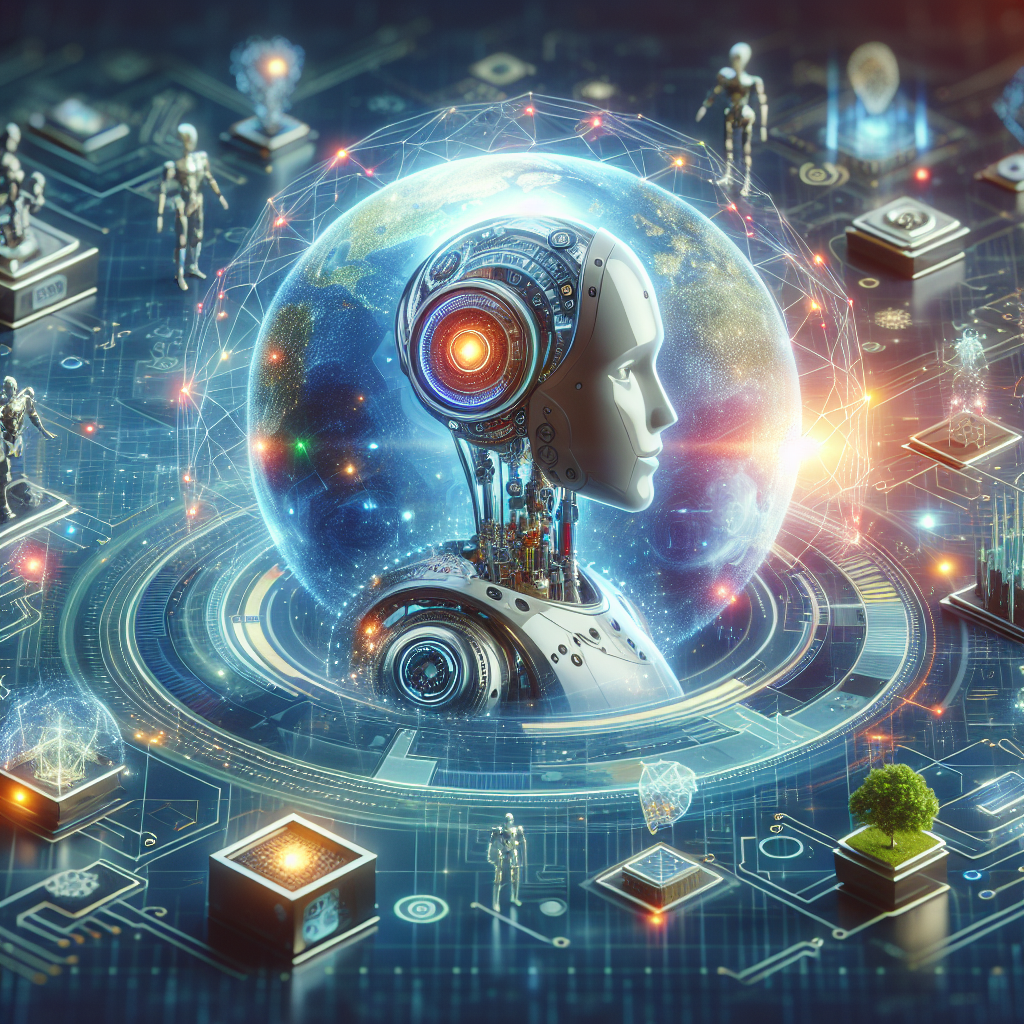Artificial General Intelligence (AGI) has long been a topic of fascination and speculation in the world of technology. It represents the next frontier in innovation and advancement, promising to revolutionize the way we live, work, and interact with the world around us. In this article, we will explore the concept of AGI, its potential implications, and the challenges that lie ahead.
What is AGI?
AGI refers to a form of artificial intelligence that possesses human-like cognitive abilities, including the ability to reason, learn, and understand complex concepts. Unlike narrow AI, which is designed to perform specific tasks or solve particular problems, AGI is capable of generalizing its knowledge and skills to a wide range of tasks and scenarios.
The ultimate goal of AGI research is to create machines that can think and act like humans, with the ability to adapt to new situations, learn from experience, and make decisions in a way that is indistinguishable from human intelligence. While we are still a long way from achieving true AGI, recent advances in machine learning, deep learning, and neural networks have brought us closer to this goal than ever before.
Why is AGI Important?
AGI has the potential to revolutionize virtually every aspect of human society, from healthcare and education to transportation and entertainment. With the ability to perform complex cognitive tasks at a level that rivals or exceeds human capabilities, AGI could automate a wide range of jobs and tasks, freeing up human workers to focus on more creative and strategic activities.
In addition, AGI could help us solve some of the most pressing challenges facing humanity, such as climate change, poverty, and disease. By harnessing the power of AI to analyze vast amounts of data and generate insights that would be impossible for humans to discover on their own, we could unlock new solutions to these complex problems and create a better future for all.
What are the Challenges of Achieving AGI?
Despite the promise of AGI, there are a number of significant challenges that must be overcome before we can achieve true artificial general intelligence. One of the biggest challenges is the complexity of the human brain, which is still not fully understood by scientists. While we have made significant advances in simulating certain aspects of human intelligence, such as language processing and image recognition, we have yet to develop a comprehensive understanding of how the brain works as a whole.
Another challenge is the ethical and societal implications of AGI. As machines become more intelligent and autonomous, there is a growing concern about the potential impact on jobs, privacy, and security. If AGI systems are not carefully designed and regulated, they could pose a threat to human society and undermine our values and principles.
How Can We Achieve AGI?
Achieving AGI will require a multi-disciplinary approach that combines insights from neuroscience, computer science, and cognitive psychology. Researchers are exploring a variety of techniques, such as deep learning, reinforcement learning, and evolutionary algorithms, to develop AI systems that can learn and adapt to new situations in a way that is similar to human intelligence.
In addition, collaboration between academia, industry, and government will be crucial to advancing AGI research and ensuring that AI is developed in a responsible and ethical manner. By working together to share data, resources, and expertise, we can accelerate progress towards achieving AGI and maximize the benefits of this transformative technology for society as a whole.
FAQs
Q: How close are we to achieving AGI?
A: While significant progress has been made in AI research in recent years, we are still a long way from achieving true AGI. Some experts believe that we could see AGI within the next few decades, while others are more cautious and predict that it may take much longer to achieve human-level intelligence in machines.
Q: What are the risks of AGI?
A: The potential risks of AGI include job displacement, loss of privacy, and security threats. If AGI systems are not carefully designed and regulated, they could lead to widespread unemployment as machines take over human jobs, invade our privacy by collecting and analyzing vast amounts of personal data, and pose a threat to national security by being used for malicious purposes.
Q: How can we ensure that AGI is developed responsibly?
A: To ensure that AGI is developed responsibly, it is important to establish clear ethical guidelines and regulations for AI research and deployment. This includes ensuring transparency and accountability in AI systems, protecting the privacy and security of individuals, and promoting diversity and inclusion in the development of AI technologies.
In conclusion, AGI represents a profound opportunity to advance human knowledge and capabilities in ways that were previously unimaginable. By overcoming the challenges of achieving AGI and working together to ensure that AI is developed in a responsible and ethical manner, we can harness the power of this transformative technology to create a better future for all.

